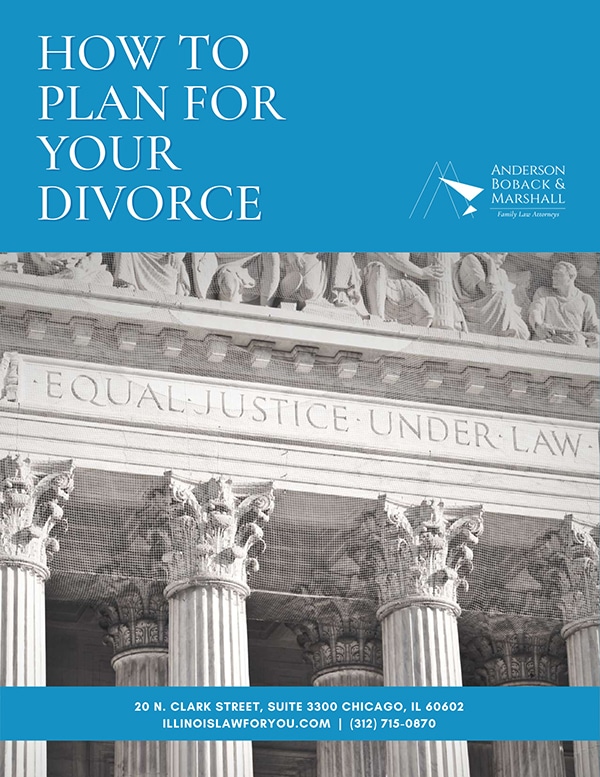When it comes to termination of spousal maintenance or spousal support (previously known as alimony), things can get tricky. To save yourself the headache that often comes with early termination of spousal maintenance, be sure to set up clear “terminating events” in the spousal maintenance provisions of your marital settlement agreement. An example of a terminating event would be the death or passing of either the payee or the payor of the spousal support or spousal maintenance. Another termination event could be cohabitation. Set a clear terminating date, as well. The clearer you are in your marital settlement agreement, the fewer issues you will encounter post-divorce. In this blog, we explore some of the different circumstances that you could leverage to terminate spousal maintenance.
Here is a video guide to help you navigate an early termination of spousal maintenance.
Early Termination of Spousal Support for Cohabitation
The biggest, most common reason for early termination of spousal support is cohabitation. Let’s say that your ex-spouse was dating someone, and you notice that their new partner’s car is always there when you pick up the kids. You notice that they are posting a lot of pictures of when they go on vacation together. If there is clearly another person in the picture, you would no longer need to pay maintenance. Gather all the social media posts and evidence that you can so you can show the judge that your ex-spouse now has a resident of continuing conjugal basis. Essentially, your goal is to prove that your ex-spouse has now entered into a marriage-like relationship with this other person.
Cohabitation as defined by Illinois Divorce Law
750 ILCS 5/510(c)
Under statute 750 ILCS 5/510(c) of the Illinois Marriage and Dissolution Act provides spousal maintenance be terminated “if the party receiving maintenance cohabits with another person on a resident, continuing conjugal basis.” There are many factors that a Court will examine to determine whether or not cohabitation is occurring, such as the following, which were examined in the Illinois case of In re Marriage of Thornton, 373 Ill. App. 3d 200, 310 Ill. Dec. 789, 867 N.E.2d 102 (3d Dist. 2007):
(1) The length of the former spouse’s relationship with the new person;
(2)The amount of time the couple spends together;
(3) The nature of activities engaged in;
(4) The interrelation of their personal affairs;
(5) Whether they vacation together; and
(6) Whether they spend holidays together.
As one might guess, whether or not a former spouse is in fact cohabiting in a resident, continuing conjugal basis is a fact to be determined by the Judge and varies by the relevant factors of each case. It is also interesting that once a prima facie case of cohabitation has been proven by the support-paying spouse, the burden shifts to the ex-spouse receiving the support, who then has to defend themselves against the allegations and prove that they are not, in fact, cohabiting on a resident, continuing conjugal basis. (See In re Marriage of Sappington, 106 Ill.2d 456, 88 Ill.Dec. 61, 478 N.E.2d 376 (1985) and In re Marriage of Herrin, 634 NE.2d 1168 (Ill. App. 4 Dist., 1994)).
Your ex-spouse may claim that their new partner is just a roommate.
Oftentimes, when people move in together, they try to pass it off by saying that they are “just roommates”. In that case, you must determine what is just a living relationship — as in they are sharing a space together — versus a marriage-like relationship.
Here are some questions you can ask:
- If you were just roommates, would you be intimate with one another?
- Would you have the same set of friends?
- Would you go out together all the time?
- Would you comingle your funds?
- Would you go on vacation together?
Clearly, these are not things that roommates actually do. Therefore, in order to show the court that they have actually entered into a marriage-like relationship compile posts on Facebook and other social media accounts to back up your case.
Be Clear in Your Initial Marital Settlement Agreement
Save all of that future headache and be clear about terminating spousal support in your initial marital settlement agreement. Make sure to include every detail and scenario possible. Don’t just include a specific date as a terminating event. Include a specific dollar amount. For example, you could state that once your ex-spouse makes about $60,000 a year, that would be an event when spousal maintenance would effectively terminate. By putting this specific language in the settlement agreement, you do not need to go back to court and fight the fuzzy type of language that comes with cohabitation.
You could actually say in the marital settlement that when someone moves in, spousal maintenance would also effectively stop. The best way to protect yourself in the future is to be as specific as possible in your marital settlement agreement. Think of all the possible scenarios and situations so that you can avoid going to court again in the future. The goal is to create self-executing clauses in your settlement agreement so when a specific event happens, the clause goes into effect without requiring a trip to court.
Our Chicago Divorce Attorneys Can Help You with Spousal Maintenance
If you are struggling with concerns over the termination of spousal maintenance and have any questions regarding early termination of support, Anderson Boback & Marshall can help. Working with an experienced divorce lawyer in Chicago can ensure spousal support and maintenance are addressed properly thereby protecting you and your financial future. Contact us today for a confidential consultation and get answers to your questions about divorce including drafting a marital settlement agreement, and terminating spousal support.
















